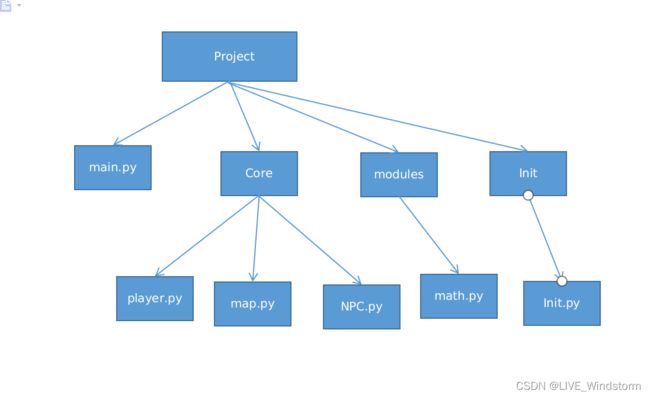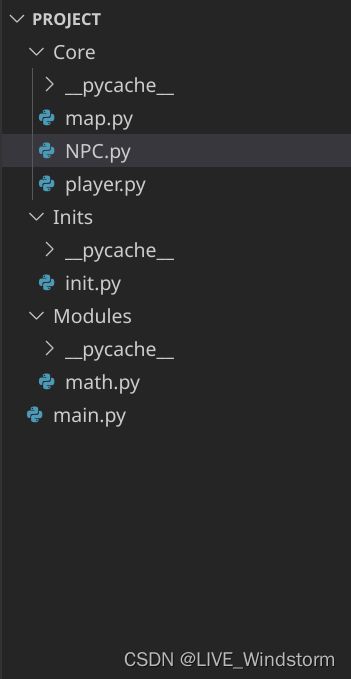- 【部署】Ktransformer是什么、如何利用单卡24GB显存部署Deepseek-R1 和 Deepseek-V3
仙人掌_lz
人工智能人工智能AI部署自然语言处理
简介KTransformers是一个灵活的、以Python为中心的框架,旨在通过先进的内核优化和放置/并行策略提升HuggingFaceTransformers的使用体验。它具有高度的可扩展性,用户可通过单行代码注入优化模块,获得兼容Transformers的接口、符合OpenAI和Ollama的RESTfulAPI,甚至简化的ChatGPT风格的WebUI。KTransformers的性能优化基
- C语言-回调函数的应用
woainizhongguo.
C/C++c语言
什么是回调函数回调函数就是一个被作为参数传递的函数。在C语言中,回调函数只能使用函数指针实现,在C++、Python、ECMAScript等更现代的编程语言中还可以使用仿函数或匿名函数。工作机制⑴定义一个回调函数;⑵提供函数实现的一方在初始化的时候,将回调函数的函数指针注册给调用者;⑶当特定的事件或条件发生的时候,调用者使用函数指针调用回调函数对事件进行处理。应用案例(1)应用层:通过调用hal层
- Python Union 联合类型注解详解
人才程序员
杂谈python服务器javalinux后端软件工程开发语言
文章目录PythonUnion联合类型注解详解1.什么是Union联合类型?**语法(Python3.9及之前版本)**:**语法(Python3.10及之后版本)**:2.Union联合类型注解示例**(1)使用Union来表示多个类型的参数****(2)使用`|`来表示联合类型(Python3.10及之后版本)**3.使用Union进行复杂类型注解**(1)使用Union与列表结合****(2
- 释放 DeepSeek 的力量:像专家一样本地安装与探索!
guzhoumingyue
AIpython
要在本地运行DeepSeek,您需要遵循以下步骤。请确保您的计算机上已安装Python和Git,并且满足DeepSeek的依赖项。步骤1:安装依赖项安装Python和pip确保您已安装Python(建议使用Python3.6及以上版本)。您可以通过在终端/命令提示符中输入以下命令来检查Python是否已安装:bash复制代码python--version或者bash复制代码python3--ver
- ffmpeg-python安装
neverayever
计算机ffmpegpythonlinux
centos-ffmpeg-python安装安装ffmpeg一:下载并解压wgethttp://www.ffmpeg.org/releases/ffmpeg-4.2.tar.gztar-zxvfffmpeg-4.2.tar.gz若linux服务器没网,可以在windows上直接访问http://www.ffmpeg.org/releases/ffmpeg-4.2.tar.gz就可下载,然后上传至服
- Python的那些事第二十七篇:Python中的“数据魔法师”NumPy
暮雨哀尘
Python的那些事pythonnumpy开发语言数据分析算法数组索引
摘要在这篇幽默风趣的论文中,我们将深入探讨NumPy——Python中最强大的数值计算库之一。它不仅提供了高性能的多维数组对象,还让复杂的数学运算变得像吃冰淇淋一样简单。本文将通过生动的代码示例和幽默的比喻,带你领略NumPy的魔法世界,让你在欢笑中掌握这个强大的工具。一、引言:为什么NumPy是程序员的“超级英雄”?1.1NumPy的起源:从“数据苦力”到“数据魔法师”想象一下,你被困在一个全是
- Python爬虫TLS
dme.
Python爬虫零基础入门爬虫python
TLS指纹校验原理和绕过浏览器可以正常访问,但是用requests发送请求失败。后端是如何监测得呢?为什么浏览器可以返回结果,而requests模块不行呢?https://cn.investing.com/equities/amazon-com-inc-historical-data1.指纹校验案例1.1案例:ascii2dhttps://ascii2d.net/importrequestsres
- python爬虫Selenium库详细教程_python爬虫之selenium库的使用详解
嘻嘻哈哈学编程
程序员python爬虫selenium
网上学习资料一大堆,但如果学到的知识不成体系,遇到问题时只是浅尝辄止,不再深入研究,那么很难做到真正的技术提升。需要这份系统化学习资料的朋友,可以戳这里获取一个人可以走的很快,但一群人才能走的更远!不论你是正从事IT行业的老鸟或是对IT行业感兴趣的新人,都欢迎加入我们的的圈子(技术交流、学习资源、职场吐槽、大厂内推、面试辅导),让我们一起学习成长!2.2访问页面2.3查找元素2.3.1单个元素下面
- 排序算法:冒泡排序(Python)
娱乐不打烊丶
排序算法算法数据结构
思路:大家一定都喝过汽水吧,汽水中常常有许多小小的气泡,往上飘,这是因为组成小气泡的二氧化碳比水要轻,所以小气泡才会一点一点的向上浮。而冒泡排序之所以叫冒泡排序,正是因为这种排序算法的每一个元素都可以向小气泡一样,根据自身大小,一点一点向着数组的一侧移动。一图解百惑,上图!那么,话不多说,上代码!defbubble_sort(input_list):#冒泡排序:每次循环,锁定一个最值,并朝着最大或
- supervisord 命令介绍和使用案例
lisanmengmeng
linux命令工具系统运维shell编程服务器linux运维
supervisord命令介绍和使用案例supervisord是一个用Python编写的进程管理工具,用于监控和管理Linux系统中的进程。它可以将普通的命令行进程转变为后台守护进程(daemon),并监控进程状态,在进程异常退出时自动重启。它通过fork/exec的方式把被管理的进程当作自己的子进程来启动。主要功能:进程管理:能够启动、停止、重启和关闭进程.自动重启:监控进程状态,并在进程崩溃时
- ptython setup.py install 设置python包编译时的并行数
leo0308
基础知识Pythonpythonpytorch3d
通过源码编译安装pytorch3d的时候,直接执行pythonsetup.pyinstall时,默认开的并行数很多,有10几个,直接导致机器卡死。通过设置下面的环境变量,可以设置较小的并行数,避免占用过多的资源。exportMAX_JOBS=4设置后,同时只有4个编译的进程。
- python 自动化数据提取之正则表达式_python 正则提取(2)
m0_60607245
程序员python学习面试
一、Python所有方向的学习路线Python所有方向的技术点做的整理,形成各个领域的知识点汇总,它的用处就在于,你可以按照下面的知识点去找对应的学习资源,保证自己学得较为全面。二、Python必备开发工具工具都帮大家整理好了,安装就可直接上手!三、最新Python学习笔记当我学到一定基础,有自己的理解能力的时候,会去阅读一些前辈整理的书籍或者手写的笔记资料,这些笔记详细记载了他们对一些技术点的理
- GUI编程(window系统→Linux系统)
诚信爱国敬业友善
心得linuxpythongui
最近有个项目需要将windows系统的程序往Linux系统上面移植,由于之前程序没有考虑过多平台兼容的问题,导致部分功能不可用以下是对近期遇到的问题的总结,以及相应的解决方案和经验分享。1.Python模块安装与管理在Linux系统中,安装和管理Python模块时可能会遇到权限问题或依赖冲突。安装模块:使用pip安装模块时,建议使用--user选项,避免需要管理员权限:bash复制pipinsta
- spring boot基于知识图谱的阿克苏市旅游管理系统python-计算机毕业设计
QQ1963288475
springboot知识图谱旅游pythonvue.jsdjangoflask
目录功能和技术介绍具体实现截图开发核心技术:开发环境开发步骤编译运行核心代码部分展示系统设计详细视频演示可行性论证软件测试源码获取功能和技术介绍该系统基于浏览器的方式进行访问,采用springboot集成快速开发框架,前端使用vue方式,基于es5的语法,开发工具IntelliJIDEAx64,因为该开发工具,内嵌了Tomcat服务运行机制,可不用单独下载Tomcatserver服务器。由于考虑到
- Python从0到100(三十九):数据提取之正则(文末免费送书)
是Dream呀
pythonmysql开发语言
前言:零基础学Python:Python从0到100最新最全教程。想做这件事情很久了,这次我更新了自己所写过的所有博客,汇集成了Python从0到100,共一百节课,帮助大家一个月时间里从零基础到学习Python基础语法、Python爬虫、Web开发、计算机视觉、机器学习、神经网络以及人工智能相关知识,成为学习学习和学业的先行者!欢迎大家订阅专栏:零基础学Python:Python从0到100最新
- Python学习心得两大编程思想
lifegoesonwjl
python开发语言pycharm前端c语言
一、两大编程思想:1.面向过程:功能上的封装典型代表:C语言2.面向对象:属性和行为上的封装典型代表:Python、Java二、面向过程与面向对象的异同点:1.区别:面向过程:事物比较简单,可用线性的思维去解决面向对象:事务比较复杂,使用简单的线性思维无法解决2.共同点:(1)面向过程和面向对象都是解决实际问题的一种思维方式;(2)二者相辅相成,并不是对立的;(3)解决复杂问题,通过面向对象方式便
- Linux升级Anacodna并配置jupyterLab
伪_装
环境部署linux服务器Anacondapythonjupyter
在使用Anaconda的过程中,随着项目和需求的发展,可能需要升级Anaconda的Base环境中的Python版本。本文将详细介绍如何安全地进行升级,包括步骤、代码示例与最终流程图。升级Python一、环境准备在进行任何升级之前,建议先检查当前的Python版本以及各个库的兼容性。我们可以通过以下命令检查当前的Python版本:condainfo你会看到类似以下的输出,其中包含了当前Python
- 【Linux】删除Conda虚拟环境
不是伍壹
Linuxlinuxconda运维
1、查看当前系统的conda虚拟环境condainfo--envscondaenvlist2、创建虚拟的环境condacreate-n(你的环境名字)python=(你需要的版本号,如(3.7,3.8,3.10))3、查看安装了哪些包condalist4、删除虚拟环境condaremove-nname--all5、删除虚拟环境中的包condaremove--name$(需要删除的环境名字)$(需要
- 动态规划之背包问题--python版本
我是小码搬运工
#python基础动态规划背包问题python版本
动态规划之背包问题–python版本问题已知一个最大量的背包,给定一组给定固定价值和固定体积的物品,求在不超过最大值的前提下,能放入背包中的最大总价值。解题思路该问题是典型的动态规划问题,分为三种不同的类型(0-1背包问题、完全背包和多重背包问题)解题关键–状态转移表达式:B(k,C)=max(B(k−1,C),B(k−1,C−ci)+vi)B(k,C)=max(B(k-1,C),B(k-1,C-
- Centos7 搭建 Jupyter + Nginx 服务
某龙兄
pythonnginxlinuxcentos
JupyterNotebook(此前被称为IPythonnotebook)是一个交互式笔记本,支持运行40多种编程语言。JupyterNotebook的本质是一个Web应用程序,便于创建和共享文学化程序文档,支持实时代码,数学方程,可视化和markdown。用途包括:数据清理和转换,数值模拟,统计建模,机器学习等等。本文讲述如何搭建Jupyter+Nginx服务,仅供学习与交流,请勿用于商业用途一
- 动态规划之背包问题的Python实现
名侦探debug
Python数据结构python数据结构动态规划求解
目录1.问题描述2.动态规划之网格法3.python实现1.问题描述题目来源于《算法图解》第9章练习题9.2,如下图所示。对于背包问题,通常的做法有列举法、贪婪算法和动态规划(1)列举法:列举出所有的可能情况,再选择最优解,但当情况很多时,这种算法复杂度很高(2)贪婪算法:在容量允许范围内,每次都拿剩余物品中价值最高的,贪婪算法能够快速解决复杂度很高的问题,但通常得到的是次优解,但就对这个题目而言
- 总结10个Python赚钱的接单平台 兼职月入5000+
begefefsef
面试学习路线阿里巴巴android前端后端
前言“如果说当下什么编程语言最靠谱或者比较适合搞副业?”答案肯定100%是:Pythonpython是所有语法中最简单易上手的语言,不需要特别的的英语词汇量,逻辑思维也不需要很差就能上手。而且学会了之后就能编写代码爬取各种数据,制作各种图表,提升工作效率。而且还能利用业余时间接点私活,一个月轻松收入过万不是问题,这样的生活他不香吗?今天就给大家盘点几个基本入门接私活的资源,让你轻松学python,
- 大学生学完python靠几个接单网站兼职,实现经济独立
「已注销」
python开发语言
大学生学完python靠几个接单网站兼职,实现经济独立程序员就是当今时代的手艺人,程序员可以通过个人的技术来谋生。而在工作之余接私单可以作为一种创富的途径,受到程序员的广泛认可。说句实在话,现在这个时代,很多人仅靠主业顶多维持基本生活,想让自己、家人生活好一点很难。我接的私活并不算多,加起来也就几万左右,只能算一半,我想把一些经验分享出来,毕竟现在生活都不容易,能赚一点是一点。一、程序员接活、新手
- Python wifi 安装手机app
yichengace
python
目的当测试机数量越来越多时,测试包的安装会成为一个问题,用wifi安装来解决这个问题,并且用脚本语言来批量控制思路思路就是py调用pc端的adb命令,向手机发送请求,无线是因为,如果未来测试机越来越多,一台电脑的usb接口数量肯定不够准备工具python,adb,pycharm,测试用app,这里选择qq(https://qd.myapp.com/myapp/qqteam/AndroidQQ/mo
- 深度学习之目标检测的常用标注工具
铭瑾熙
人工智能机器学习深度学习深度学习目标检测目标跟踪
1LabelImgLabelImg是一款开源的图像标注工具,标签可用于分类和目标检测,它是用Python编写的,并使用Qt作为其图形界面,简单好用。注释以PASCALVOC格式保存为XML文件,这是ImageNet使用的格式。此外,它还支持COCO数据集格式。2labelmelabelme是一款开源的图像/视频标注工具,标签可用于目标检测、分割和分类。灵感是来自于MIT开源的一款标注工具Label
- Python 舆论风向分析爬虫:全流程数据获取、清洗与情感剖析
西攻城狮北
python爬虫开发语言实战案例
引言在当今信息爆炸的时代,互联网上充斥着海量的用户言论和观点。了解舆论风向对于企业、政府机构以及研究者等具有重要的意义,可以帮助他们及时把握公众情绪、调整策略与决策。Python作为一种强大的编程语言,在数据爬取与分析方面具有得天独厚的优势,能够助力我们高效地实现舆情监测与深入剖析。一、环境搭建与目标确定1.环境搭建为了顺利完成爬虫与数据分析任务,首先需要确保你的开发环境已经安装了以下Python
- PyCharm 集成 DeepSeek:本地运行 or API 直连?打造你的 AI 编程神器!
AI云极
【AI智能系列】pycharm人工智能idedeepseek
在AI赋能编程的时代,如何让AI辅助写代码,提升开发效率?DeepSeek作为一款开源、强大、免费的AI编程助手,结合PyCharm,能够大幅提升Python编程体验。今天,我们就来详细讲解如何在PyCharm中接入DeepSeek,无论你想使用本地部署的DeepSeek,还是官方API版本,都能轻松实现!为什么选择DeepSeek+PyCharm?DeepSeekR1采用6710亿参数的MoE(
- Python3.5源码分析-sys模块及site模块导入
小屋子大侠
pythonPython分析python源码
Python3源码分析本文环境python3.5.2。参考书籍>python官网Python3的sys模块初始化根据分析完成builtins初始化后,继续分析sys模块的初始化,继续分析_Py_InitializeEx_Private函数的执行,void_Py_InitializeEx_Private(intinstall_sigs,intinstall_importlib){...sysmod=
- 【CUDA】Pytorch_Extensions
joker D888
深度学习pytorchpythoncudac++深度学习
【CUDA】Pytorch_Extensions为什么要开发CUDA扩展?当我们在PyTorch中实现自定义算子时,通常有两种选择:使用纯Python实现(简单但效率低)使用C++/CUDA扩展(高效但需要编译)对于计算密集型的操作(如神经网络中的自定义激活函数),使用CUDA扩展可以获得接近硬件极限的性能。本文将以实现一个多项式激活函数x²+x+1为例,展示完整的开发流程。完整CUDA扩展代码解
- Labelbox:引领AI与人类协作的未来
魏兴雄Milburn
Labelbox:引领AI与人类协作的未来labelbox-pythonLabelboxPythonClient项目地址:https://gitcode.com/gh_mirrors/la/labelbox-python项目介绍Labelbox是一款专为企业和学术研究社区设计的开源工具,旨在简化数据标注、生成高质量的人类反馈数据、评估和提升模型性能,并通过无缝结合AI与人类工作流程来自动化任务。无
- 对于规范和实现,你会混淆吗?
yangshangchuan
HotSpot
昨晚和朋友聊天,喝了点咖啡,由于我经常喝茶,很长时间没喝咖啡了,所以失眠了,于是起床读JVM规范,读完后在朋友圈发了一条信息:
JVM Run-Time Data Areas:The Java Virtual Machine defines various run-time data areas that are used during execution of a program. So
- android 网络
百合不是茶
网络
android的网络编程和java的一样没什么好分析的都是一些死的照着写就可以了,所以记录下来 方便查找 , 服务器使用的是TomCat
服务器代码; servlet的使用需要在xml中注册
package servlet;
import java.io.IOException;
import java.util.Arr
- [读书笔记]读法拉第传
comsci
读书笔记
1831年的时候,一年可以赚到1000英镑的人..应该很少的...
要成为一个科学家,没有足够的资金支持,很多实验都无法完成
但是当钱赚够了以后....就不能够一直在商业和市场中徘徊......
- 随机数的产生
沐刃青蛟
随机数
c++中阐述随机数的方法有两种:
一是产生假随机数(不管操作多少次,所产生的数都不会改变)
这类随机数是使用了默认的种子值产生的,所以每次都是一样的。
//默认种子
for (int i = 0; i < 5; i++)
{
cout<<
- PHP检测函数所在的文件名
IT独行者
PHP函数
很简单的功能,用到PHP中的反射机制,具体使用的是ReflectionFunction类,可以获取指定函数所在PHP脚本中的具体位置。 创建引用脚本。
代码:
[php]
view plain
copy
// Filename: functions.php
<?php&nbs
- 银行各系统功能简介
文强chu
金融
银行各系统功能简介 业务系统 核心业务系统 业务功能包括:总账管理、卡系统管理、客户信息管理、额度控管、存款、贷款、资金业务、国际结算、支付结算、对外接口等 清分清算系统 以清算日期为准,将账务类交易、非账务类交易的手续费、代理费、网络服务费等相关费用,按费用类型计算应收、应付金额,经过清算人员确认后上送核心系统完成结算的过程 国际结算系
- Python学习1(pip django 安装以及第一个project)
小桔子
pythondjangopip
最近开始学习python,要安装个pip的工具。听说这个工具很强大,安装了它,在安装第三方工具的话so easy!然后也下载了,按照别人给的教程开始安装,奶奶的怎么也安装不上!
第一步:官方下载pip-1.5.6.tar.gz, https://pypi.python.org/pypi/pip easy!
第二部:解压这个压缩文件,会看到一个setup.p
- php 数组
aichenglong
PHP排序数组循环多维数组
1 php中的创建数组
$product = array('tires','oil','spark');//array()实际上是语言结构而不 是函数
2 如果需要创建一个升序的排列的数字保存在一个数组中,可以使用range()函数来自动创建数组
$numbers=range(1,10)//1 2 3 4 5 6 7 8 9 10
$numbers=range(1,10,
- 安装python2.7
AILIKES
python
安装python2.7
1、下载可从 http://www.python.org/进行下载#wget https://www.python.org/ftp/python/2.7.10/Python-2.7.10.tgz
2、复制解压
#mkdir -p /opt/usr/python
#cp /opt/soft/Python-2
- java异常的处理探讨
百合不是茶
JAVA异常
//java异常
/*
1,了解java 中的异常处理机制,有三种操作
a,声明异常
b,抛出异常
c,捕获异常
2,学会使用try-catch-finally来处理异常
3,学会如何声明异常和抛出异常
4,学会创建自己的异常
*/
//2,学会使用try-catch-finally来处理异常
- getElementsByName实例
bijian1013
element
实例1:
<!DOCTYPE html PUBLIC "-//W3C//DTD XHTML 1.0 Transitional//EN" "http://www.w3.org/TR/xhtml1/DTD/xhtml1-transitional.dtd">
<html xmlns="http://www.w3.org/1999/x
- 探索JUnit4扩展:Runner
bijian1013
java单元测试JUnit
参加敏捷培训时,教练提到Junit4的Runner和Rule,于是特上网查一下,发现很多都讲的太理论,或者是举的例子实在是太牵强。多搜索了几下,搜索到两篇我觉得写的非常好的文章。
文章地址:http://www.blogjava.net/jiangshachina/archive/20
- [MongoDB学习笔记二]MongoDB副本集
bit1129
mongodb
1. 副本集的特性
1)一台主服务器(Primary),多台从服务器(Secondary)
2)Primary挂了之后,从服务器自动完成从它们之中选举一台服务器作为主服务器,继续工作,这就解决了单点故障,因此,在这种情况下,MongoDB集群能够继续工作
3)挂了的主服务器恢复到集群中只能以Secondary服务器的角色加入进来
2
- 【Spark八十一】Hive in the spark assembly
bit1129
assembly
Spark SQL supports most commonly used features of HiveQL. However, different HiveQL statements are executed in different manners:
1. DDL statements (e.g. CREATE TABLE, DROP TABLE, etc.)
- Nginx问题定位之监控进程异常退出
ronin47
nginx在运行过程中是否稳定,是否有异常退出过?这里总结几项平时会用到的小技巧。
1. 在error.log中查看是否有signal项,如果有,看看signal是多少。
比如,这是一个异常退出的情况:
$grep signal error.log
2012/12/24 16:39:56 [alert] 13661#0: worker process 13666 exited on s
- No grammar constraints (DTD or XML schema).....两种解决方法
byalias
xml
方法一:常用方法 关闭XML验证
工具栏:windows => preferences => xml => xml files => validation => Indicate when no grammar is specified:选择Ignore即可。
方法二:(个人推荐)
添加 内容如下
<?xml version=
- Netty源码学习-DefaultChannelPipeline
bylijinnan
netty
package com.ljn.channel;
/**
* ChannelPipeline采用的是Intercepting Filter 模式
* 但由于用到两个双向链表和内部类,这个模式看起来不是那么明显,需要仔细查看调用过程才发现
*
* 下面对ChannelPipeline作一个模拟,只模拟关键代码:
*/
public class Pipeline {
- MYSQL数据库常用备份及恢复语句
chicony
mysql
备份MySQL数据库的命令,可以加选不同的参数选项来实现不同格式的要求。
mysqldump -h主机 -u用户名 -p密码 数据库名 > 文件
备份MySQL数据库为带删除表的格式,能够让该备份覆盖已有数据库而不需要手动删除原有数据库。
mysqldump -–add-drop-table -uusername -ppassword databasename > ba
- 小白谈谈云计算--基于Google三大论文
CrazyMizzz
Google云计算GFS
之前在没有接触到云计算之前,只是对云计算有一点点模糊的概念,觉得这是一个很高大上的东西,似乎离我们大一的还很远。后来有机会上了一节云计算的普及课程吧,并且在之前的一周里拜读了谷歌三大论文。不敢说理解,至少囫囵吞枣啃下了一大堆看不明白的理论。现在就简单聊聊我对于云计算的了解。
我先说说GFS
&n
- hadoop 平衡空间设置方法
daizj
hadoopbalancer
在hdfs-site.xml中增加设置balance的带宽,默认只有1M:
<property>
<name>dfs.balance.bandwidthPerSec</name>
<value>10485760</value>
<description&g
- Eclipse程序员要掌握的常用快捷键
dcj3sjt126com
编程
判断一个人的编程水平,就看他用键盘多,还是鼠标多。用键盘一是为了输入代码(当然了,也包括注释),再有就是熟练使用快捷键。 曾有人在豆瓣评
《卓有成效的程序员》:“人有多大懒,才有多大闲”。之前我整理了一个
程序员图书列表,目的也就是通过读书,让程序员变懒。 程序员作为特殊的群体,有的人可以这么懒,懒到事情都交给机器去做,而有的人又可以那么勤奋,每天都孜孜不倦得
- Android学习之路
dcj3sjt126com
Android学习
转自:http://blog.csdn.net/ryantang03/article/details/6901459
以前有J2EE基础,接触JAVA也有两三年的时间了,上手Android并不困难,思维上稍微转变一下就可以很快适应。以前做的都是WEB项目,现今体验移动终端项目,让我越来越觉得移动互联网应用是未来的主宰。
下面说说我学习Android的感受,我学Android首先是看MARS的视
- java 遍历Map的四种方法
eksliang
javaHashMapjava 遍历Map的四种方法
转载请出自出处:
http://eksliang.iteye.com/blog/2059996
package com.ickes;
import java.util.HashMap;
import java.util.Iterator;
import java.util.Map;
import java.util.Map.Entry;
/**
* 遍历Map的四种方式
- 【精典】数据库相关相关
gengzg
数据库
package C3P0;
import java.sql.Connection;
import java.sql.SQLException;
import java.beans.PropertyVetoException;
import com.mchange.v2.c3p0.ComboPooledDataSource;
public class DBPool{
- 自动补全
huyana_town
自动补全
<!DOCTYPE html PUBLIC "-//W3C//DTD XHTML 1.0 Transitional//EN" "http://www.w3.org/TR/xhtml1/DTD/xhtml1-transitional.dtd"><html xmlns="http://www.w3.org/1999/xhtml&quo
- jquery在线预览PDF文件,打开PDF文件
天梯梦
jquery
最主要的是使用到了一个jquery的插件jquery.media.js,使用这个插件就很容易实现了。
核心代码
<!DOCTYPE html PUBLIC "-//W3C//DTD XHTML 1.0 Transitional//EN" "http://www.w3.org/TR/xhtml1/DTD/xhtml1-transitional.
- ViewPager刷新单个页面的方法
lovelease
androidviewpagertag刷新
使用ViewPager做滑动切换图片的效果时,如果图片是从网络下载的,那么再子线程中下载完图片时我们会使用handler通知UI线程,然后UI线程就可以调用mViewPager.getAdapter().notifyDataSetChanged()进行页面的刷新,但是viewpager不同于listview,你会发现单纯的调用notifyDataSetChanged()并不能刷新页面
- 利用按位取反(~)从复合枚举值里清除枚举值
草料场
enum
以 C# 中的 System.Drawing.FontStyle 为例。
如果需要同时有多种效果,
如:“粗体”和“下划线”的效果,可以用按位或(|)
FontStyle style = FontStyle.Bold | FontStyle.Underline;
如果需要去除 style 里的某一种效果,
- Linux系统新手学习的11点建议
刘星宇
编程工作linux脚本
随着Linux应用的扩展许多朋友开始接触Linux,根据学习Windwos的经验往往有一些茫然的感觉:不知从何处开始学起。这里介绍学习Linux的一些建议。
一、从基础开始:常常有些朋友在Linux论坛问一些问题,不过,其中大多数的问题都是很基础的。例如:为什么我使用一个命令的时候,系统告诉我找不到该目录,我要如何限制使用者的权限等问题,这些问题其实都不是很难的,只要了解了 Linu
- hibernate dao层应用之HibernateDaoSupport二次封装
wangzhezichuan
DAOHibernate
/**
* <p>方法描述:sql语句查询 返回List<Class> </p>
* <p>方法备注: Class 只能是自定义类 </p>
* @param calzz
* @param sql
* @return
* <p>创建人:王川</p>
* <p>创建时间:Jul

